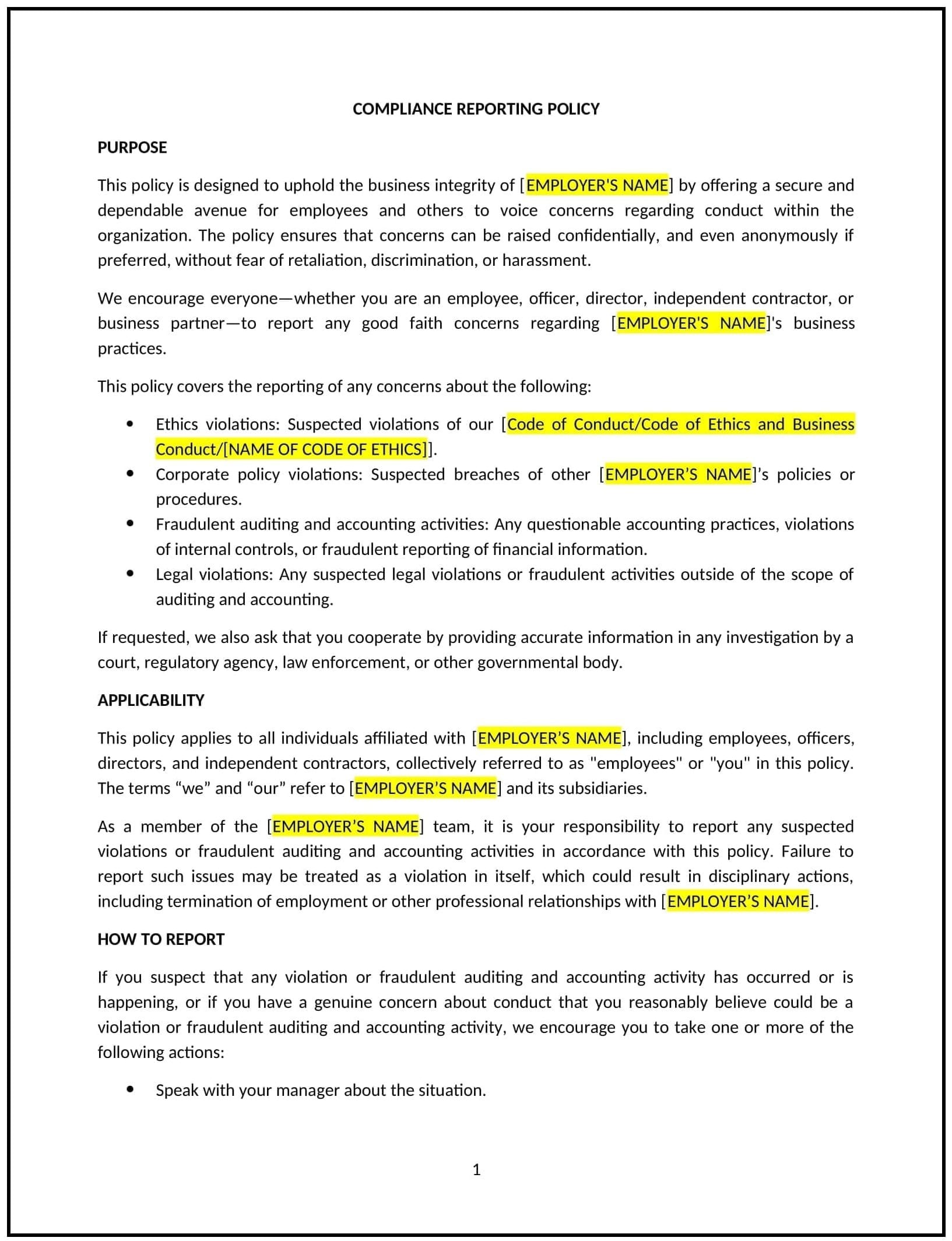Compliance reporting policy (Tennessee): Free template
Got contracts to review? While you're here for policies, let Cobrief make contract review effortless—start your free review now.

Customize this template for free
Compliance reporting policy (Tennessee)
This compliance reporting policy is designed to help Tennessee businesses create guidelines for employees to report potential violations of laws, regulations, or company policies. It outlines procedures for reporting, investigating, and addressing compliance concerns.
By adopting this policy, businesses can promote ethical behavior, reduce legal risks, and maintain a culture of accountability.
How to use this compliance reporting policy (Tennessee)
- Define reporting procedures: Provide steps for employees to report compliance concerns, including anonymous options.
- Set investigation protocols: Outline how reports will be investigated, including timelines and confidentiality measures.
- Address consequences: Specify the consequences for violations, such as warnings, suspension, or termination.
- Train employees: Educate employees on recognizing and reporting compliance concerns.
- Review and update: Assess the policy annually to ensure it aligns with evolving business needs and legal requirements.
Benefits of using this compliance reporting policy (Tennessee)
This policy offers several advantages for Tennessee businesses:
- Promotes ethical behavior: Encourages employees to report potential violations and take responsibility for their actions.
- Reduces legal risks: Helps businesses address compliance concerns before they escalate into legal disputes.
- Maintains accountability: Demonstrates a commitment to upholding laws, regulations, and company policies.
- Enhances trust: Builds employee confidence in the business’s commitment to integrity and transparency.
- Aligns with best practices: Provides a structured approach to managing compliance reporting.
Tips for using this compliance reporting policy (Tennessee)
- Communicate the policy: Share the policy with employees and include it in the employee handbook.
- Provide training: Educate employees on recognizing and reporting compliance concerns.
- Monitor compliance: Regularly review reports and investigations to ensure adherence to the policy.
- Address issues promptly: Take corrective action if compliance concerns are reported or observed.
- Update regularly: Assess the policy annually to ensure it aligns with evolving business needs and legal requirements.